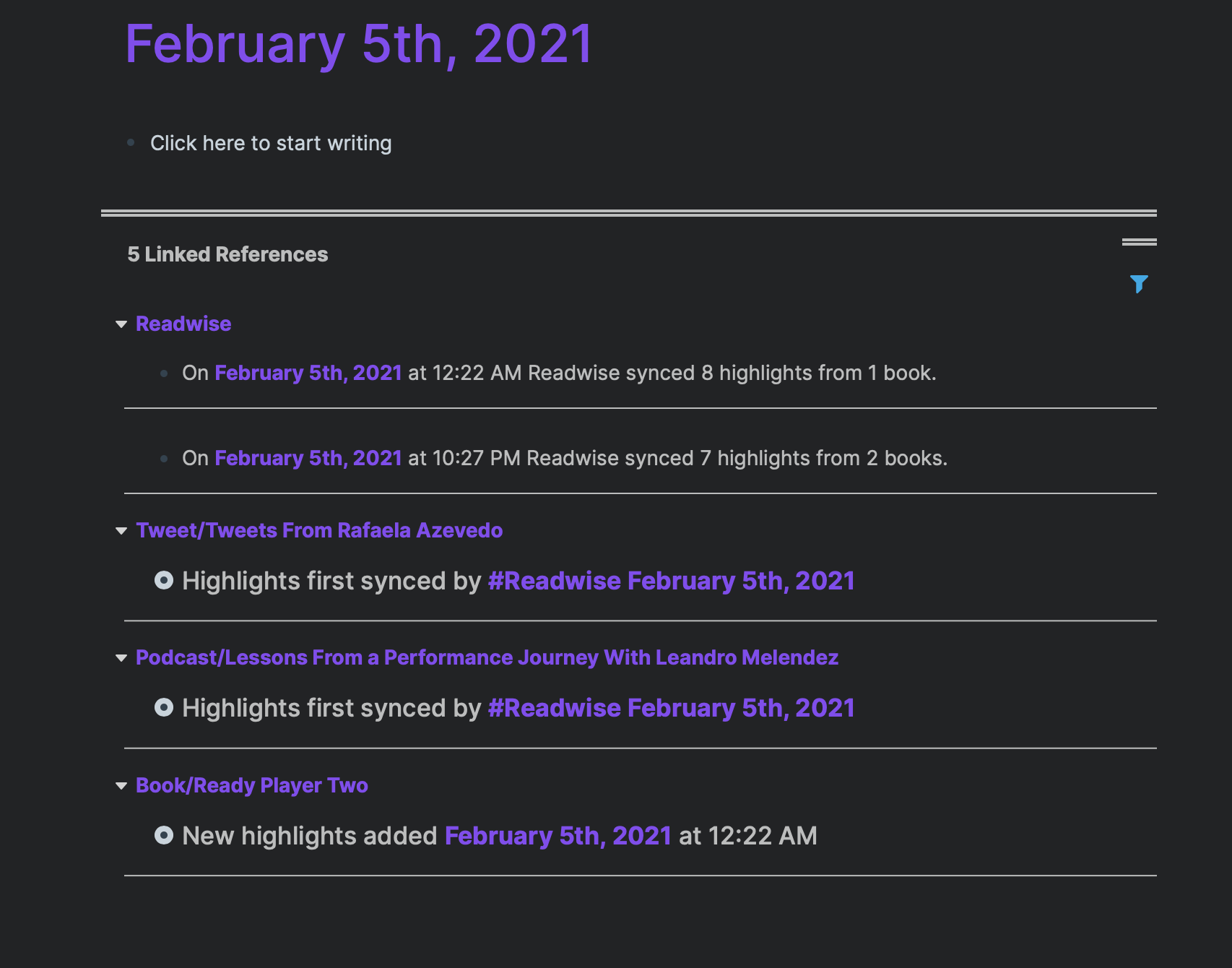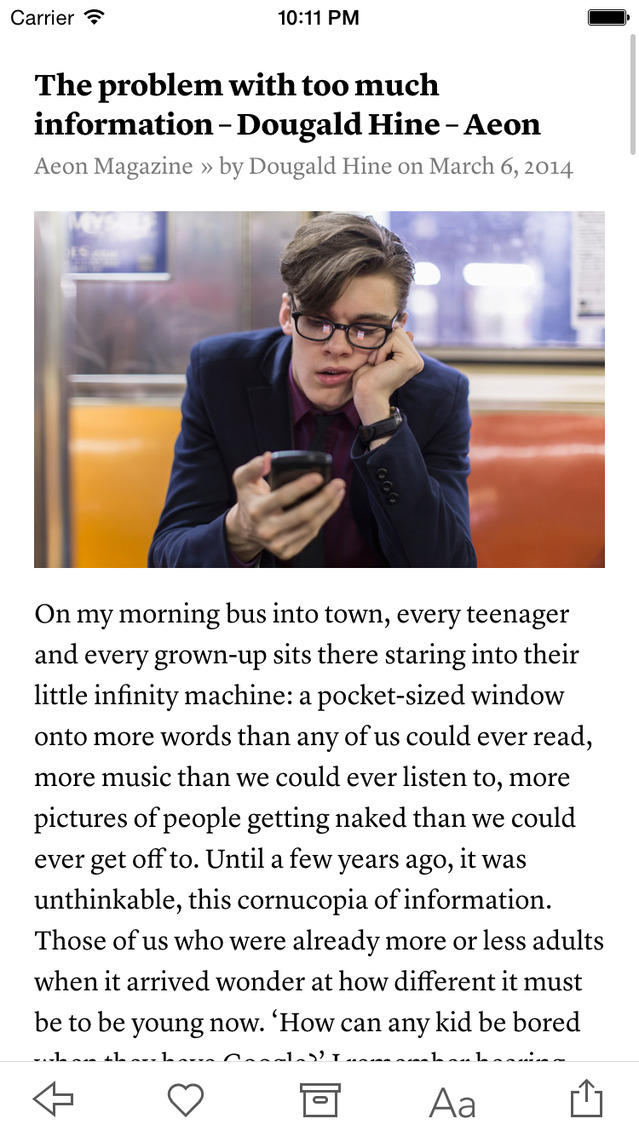

You need to see reading for what it really is: only the first step in a larger process.


If you really want to understand something, you can’t stop there. Reading for understanding is inherently flawed because it’s based on the faulty assumption that we learn by transmission-absorbing knowledge by reading words on a page. Perhaps books aren’t to blame, but rather, it’s how we read that makes learning inefficient.
#Instapaper readwise how to#
So why is it so difficult to remember what you read? How to Remember What You Read They’re also incredible at transferring knowledge through space and time. But books are, without a doubt, still one of the best tools for learning how to do something or for understanding a new concept. Have you ever read a book that inspired you to take action, only to have your motivation fizzle out a few days later? Or maybe you tried to explain a concept you recently read about only to discover that you can’t recall more than a few vague ideas.įor the number of hours it takes to read a book, you’d hope to earn a better return on your investment. A book is proof that humans are capable of working magic." Writing is perhaps the greatest of human inventions, binding together people who never knew each other, citizens of distant epochs. Across the millennia, an author is speaking clearly and silently inside your head, directly to you. But one glance at it and you're inside the mind of another person, maybe somebody dead for thousands of years. It's a flat object made from a tree with flexible parts on which are imprinted lots of funny dark squiggles.


 0 kommentar(er)
0 kommentar(er)
